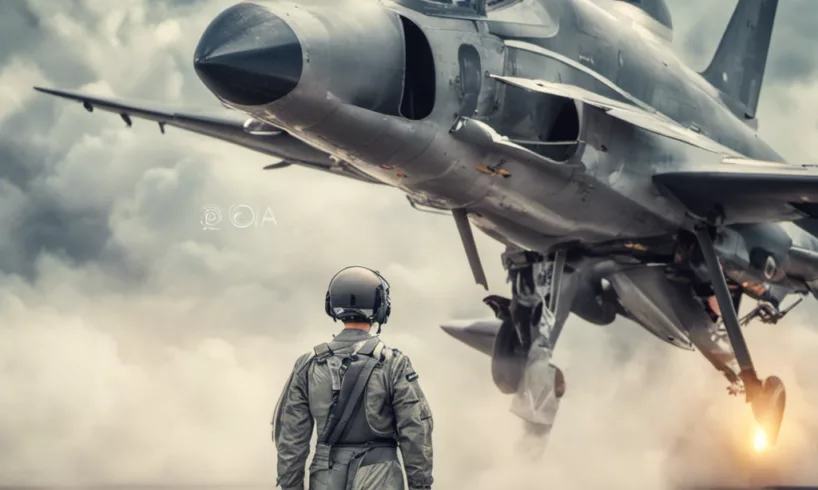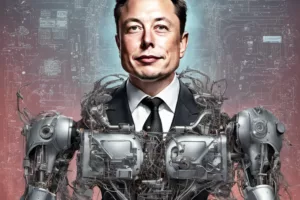
AI Technology Takes Control as Human Pilots Hand Over the Reins
In a groundbreaking development, human pilots relinquish control to artificial intelligence (AI) systems in military aviation. This paradigm shift marks a significant milestone in integrating AI technology into the armed forces. As veterans of armed conflicts in Afghanistan and the Middle East, these pilots are witnessing the automation of their roles firsthand. While some may see this transition as progress, others express a bittersweet sentiment, acknowledging that they are effectively working themselves out of a job. This article delves into the implications of this revolutionary shift, exploring the benefits, challenges, and ethical considerations surrounding the rise of AI in military aviation.
Increased Efficiency and Precision: AI Takes the Helm
As AI technology advances, it is increasingly capable of handling complex tasks previously reserved for human pilots. The integration of AI into military aircraft offers a range of advantages, including enhanced efficiency and precision. AI systems can process vast amounts of data, analyze patterns, and make split-second decisions, surpassing human capabilities in speed and accuracy. This increased efficiency improves combat effectiveness, allowing quicker response times and more precise targeting.
Mitigating Human Error: A Safer Future
One of the primary motivations behind incorporating AI into military aviation is the potential to reduce human error. Pilots, despite their extensive training and experience, are still susceptible to fatigue, stress, and cognitive biases that can compromise their decision-making abilities. By transferring control to AI systems, the risk of human error can be significantly mitigated, potentially leading to safer missions and fewer casualties. Additionally, AI can analyze data in real-time, detecting anomalies and potential threats more effectively than human pilots alone.
Ethical Considerations: The Role of Human Judgment
While integrating AI in military aviation offers numerous benefits, it also raises ethical considerations. The use of AI systems in combat situations begs the question of accountability and the role of human judgment. Can AI be trusted to make critical decisions without human oversight? While AI technology continues to evolve, it is essential to establish clear guidelines and safeguards to ensure that human judgment remains an integral part of the decision-making process. Striking the right balance between AI autonomy and human oversight is crucial to maintaining ethical standards and avoiding potential unintended consequences.
The Human Element: The Future of Military Pilots
As AI assumes more responsibility in military aviation, the role of human pilots may undergo a fundamental transformation. Rather than being completely replaced, human pilots may transition into a supervisory role, overseeing AI systems and providing critical input when necessary. This hybrid approach could leverage the strengths of both humans and AI, combining human intuition and adaptability with AI’s computational power and speed. The future of military pilots lies in their ability to adapt and collaborate with AI, ensuring a seamless integration that maximizes efficiency and effectiveness.
The Changing Landscape: Implications for the Workforce
The integration of AI in military aviation is not without its challenges. As AI systems become more advanced and capable, the demand for human pilots may decrease. This shift could have significant implications for the workforce, potentially leading to job displacement and the need for retraining and reskilling. Governments and military organizations must proactively address these challenges, ensuring that the transition to AI is accompanied by measures to support affected individuals and facilitate their transition into new roles or industries.
The rise of AI in military aviation represents a pivotal moment in the evolution of warfare. As human pilots hand over control to AI systems, the potential for increased efficiency, precision, and safety becomes evident. However, ethical considerations and the changing landscape of the workforce must be carefully addressed. The future lies in balancing AI autonomy and human oversight, harnessing the strengths to achieve optimal results. As technology advances, it is crucial to navigate this transformative era with caution, ensuring that the integration of AI aligns with ethical principles and human values.

Bob Thompson is our in-house Home and Garden, Energy, and Gaming news writer. Bob is keenly aware of the need to recycle. Bob has written for many online publications over the course of his writing career, before joining our team here at DailyTechFeed.




